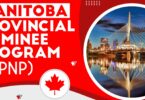Canada is a top destination for individuals from North Africa, including Algerians, Moroccans, and Egyptians, offering vast opportunities in education, employment, and permanent settlement. In recent years, Canada has seen an influx of immigrants from these regions, drawn by the country’s diverse population, thriving economy, and progressive policies. Whether you’re aiming to study, work, or settle, Canada provides a variety of pathways that can make your dreams a reality. This comprehensive guide will help you navigate through the immigration process, explore job opportunities, and understand the costs and preparations required to relocate successfully.
Best Immigration Routes
Canada offers several immigration pathways, each catering to different goals and skills. As a North African immigrant, it’s crucial to choose the route that aligns best with your ambitions, whether that’s pursuing education, securing a job, or gaining permanent residency.
Express Entry System
The Express Entry System is one of the most popular and efficient ways for skilled workers to immigrate to Canada. The system processes applications quickly and allows qualified candidates to gain permanent residency through one of three main programs:
-
Federal Skilled Worker Program (FSWP): This program is designed for individuals with skilled work experience, such as engineers, tech professionals, and healthcare workers.
-
Federal Skilled Trades Program (FSTP): Aimed at individuals with experience in skilled trades like plumbing, welding, and construction.
-
Canadian Experience Class (CEC): Designed for applicants with Canadian work experience. If you’re already in Canada on a temporary work permit, this program allows for easier transition to permanent residency.
How Express Entry Works:
-
Candidates are evaluated based on a point system (Comprehensive Ranking System – CRS). Points are awarded for factors such as age, education, work experience, and language proficiency.
-
Once you enter the Express Entry pool, candidates with the highest CRS scores are invited to apply for permanent residency.
Why North Africans should apply:
Express Entry is a direct, fast, and transparent system that doesn’t require a job offer. Algerians, Moroccans, and Egyptians with strong English or French skills, relevant work experience, and a high education level can significantly improve their chances of receiving an Invitation to Apply (ITA) for permanent residency.
Study Permit: A Pathway to Canada’s Education System
Canada is known for its world-class education system, attracting students from around the world. For North Africans looking to pursue higher education, obtaining a Study Permit is an essential step.

Key Steps to Obtain a Study Permit:
-
Letter of Acceptance: You must be accepted by a Designated Learning Institution (DLI) in Canada.
-
Proof of Financial Support: You’ll need to show you can support yourself financially while studying (CAD 10,000/year for a single student).
-
English or French Proficiency: International students must prove language proficiency, usually through IELTS or TOEFL (for English) or TEF (for French).
-
Valid Passport: You must have a passport valid for the duration of your stay in Canada.
-
Application: Apply through the Canadian Immigration and Citizenship (CIC) portal online.
Popular Canadian Universities for North African Students:
-
McGill University (Montreal): Ideal for bilingual students as McGill offers programs in both English and French.
-
University of Toronto (Ontario): One of the best-ranked universities worldwide, especially for research in engineering, medical sciences, and social sciences.
-
Université de Montréal (Quebec): A great option for French-speaking students from Morocco or Algeria.
-
University of British Columbia (Vancouver): Known for its strong environmental science and arts programs, welcoming international students.
Quebec Immigration: A Special Case for French Speakers
Quebec offers a unique immigration program tailored to French-speaking immigrants. This province has its own set of immigration rules and offers additional opportunities for those who are proficient in French. North Africans from Morocco, Algeria, and Tunisia, who speak French, may have an advantage when applying through the Quebec Skilled Worker Program (QSWP) or other regional programs.
Advantages for French Speakers:
-
Easier integration into Quebec society due to language skills.
-
Quebec’s permanent residency programs are generally more accessible for those fluent in French.
-
You can apply for a Certificat de sélection du Québec (CSQ), which accelerates the process for French-speaking immigrants.
Tech Worker Programs: Canada’s Growing Tech Sector
Canada’s tech industry is booming, and there are plenty of opportunities for skilled workers in fields like software development, cybersecurity, and IT management. Programs like Tech Talent Strategy help companies find international tech workers, including from North Africa.
Tech workers from Algeria, Egypt, and Morocco can apply under the Global Talent Stream, which fast-tracks work permits and allows companies to hire foreign talent for specialized positions.
Key Programs for Tech Workers:
-
Global Talent Stream (GTS): Allows employers to hire tech talent more quickly.
-
Start-Up Visa Program: For entrepreneurs with innovative business ideas, offering permanent residency if the business is successful.
Key Documents Needed for Canadian Immigration
For any immigration pathway, certain documents are essential:
-
IELTS or TEF (Language Proficiency Test): Proof of language proficiency in either English (IELTS) or French (TEF) is necessary for most programs.
-
Passport: A valid passport is required for your entire stay.
-
Proof of Funds: You’ll need to demonstrate that you can financially support yourself upon arrival in Canada. For a single applicant, this typically amounts to CAD 13,000–14,000.
-
Police Clearance Certificate: A criminal record check is required to demonstrate good conduct.
-
Educational Credential Assessment (ECA): If you are applying through Express Entry and your education was obtained outside Canada, you’ll need an ECA to verify your credentials.
Work & Study Opportunities for North Africans in Canada
Canada is a land of opportunities for North African immigrants, particularly in sectors like engineering, IT, and healthcare. Many students from Algeria, Morocco, and Egypt are drawn to Canada for its renowned educational system and post-graduation work opportunities.
Key Sectors Hiring North Africans
-
Engineering: Civil, mechanical, electrical, and environmental engineers are in high demand across Canada.
-
Information Technology (IT): Software developers, system architects, data scientists, and IT support roles are particularly sought after, especially in tech hubs like Toronto, Vancouver, and Montreal.
-
Nursing and Healthcare: Nurses and healthcare professionals have great prospects, particularly due to Canada’s aging population and healthcare needs.
Scholarship Opportunities for Moroccans and Egyptians
There are several scholarships designed for Moroccan and Egyptian students, including:
-
MasterCard Foundation Scholars Program: Offers full scholarships for African students, including from Morocco and Egypt, to study at Canadian universities.
-
Vanier Canada Graduate Scholarships: For postgraduate students pursuing doctoral studies in Canada.
-
Banting Postdoctoral Fellowships: For postdoctoral research in Canadian institutions.
Relocation Costs & Planning
Understanding the costs of living and the financial requirements is crucial for planning your move. Here’s a breakdown of what you might need to consider:
Cost of Living in Major Provinces:
-
Ontario (Toronto): High living costs, approximately CAD 20,000–25,000/year for a single person.
-
Quebec (Montreal): More affordable living costs, CAD 15,000–20,000/year.
-
British Columbia (Vancouver): One of the most expensive cities, CAD 22,000–28,000/year.
Flight & Housing Estimates:
-
Flights from North Africa to Canada: Typically range between CAD 700–1,500 depending on the time of year and destination.
-
Housing: Rent in Canada can vary greatly depending on location. In major cities like Toronto, a one-bedroom apartment can cost between CAD 1,200–2,500/month.
Scam Warning & Resources
Beware of Fraudulent Immigration Agents: Unfortunately, immigration scams are common. Be cautious about any agents who promise guaranteed outcomes, ask for large upfront fees, or provide vague information. Always refer to Canada’s official immigration resources:
-
Immigration, Refugees, and Citizenship Canada (IRCC)
-
Quebec Immigration (for Quebec-specific information)
-
Canadian Job Bank for job listings
FAQ Section
1. Can I apply for a job in Canada before getting a visa?
Yes, you can search for a job, but you must have a job offer before applying for a work visa.
2. How long does the visa processing take from North Africa?
Study permits usually take around 6–10 weeks, while work permits can take 8–12 weeks. Express Entry applications can take around 6 months.
3. What should I do if I have an issue with my application?
You can contact IRCC for official guidance or consult a licensed immigration consultant for assistance.
Canada continues to be an attractive destination for Algerians, Moroccans, and Egyptians, offering exceptional opportunities in education, work, and permanent residency. By following the proper immigration channels, preparing your documents, and planning for living expenses, you can successfully make the move to Canada. Take advantage of Canada’s transparent processes, diverse job sectors, and welcoming environment to build a prosperous future in one of the world’s most desirable countries.
Search for Canada migration opportunities below






Leave a Comment